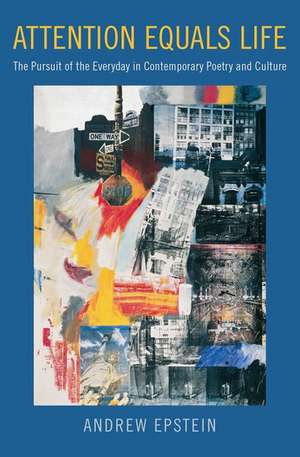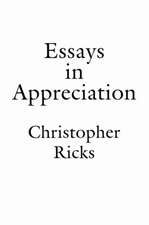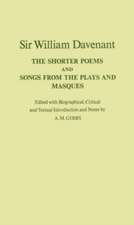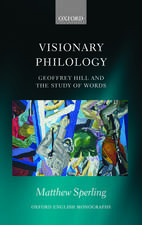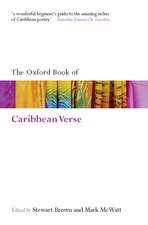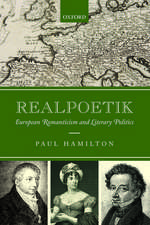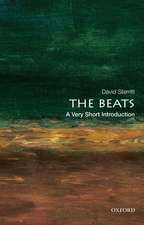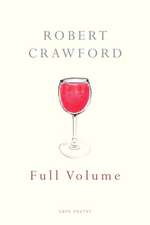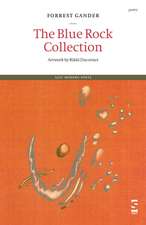Attention Equals Life: The Pursuit of the Everyday in Contemporary Poetry and Culture
Autor Andrew Epsteinen Limba Engleză Paperback – 4 oct 2018
| Toate formatele și edițiile | Preț | Express |
|---|---|---|
| Paperback (1) | 252.90 lei 31-38 zile | |
| Oxford University Press – 4 oct 2018 | 252.90 lei 31-38 zile | |
| Hardback (1) | 617.73 lei 31-38 zile | |
| Oxford University Press – 4 aug 2016 | 617.73 lei 31-38 zile |
Preț: 252.90 lei
Preț vechi: 290.85 lei
-13% Nou
Puncte Express: 379
Preț estimativ în valută:
48.39€ • 51.75$ • 40.35£
48.39€ • 51.75$ • 40.35£
Carte tipărită la comandă
Livrare economică 07-14 aprilie
Preluare comenzi: 021 569.72.76
Specificații
ISBN-13: 9780190887407
ISBN-10: 0190887400
Pagini: 384
Dimensiuni: 157 x 231 x 28 mm
Greutate: 0.56 kg
Editura: Oxford University Press
Colecția OUP USA
Locul publicării:New York, United States
ISBN-10: 0190887400
Pagini: 384
Dimensiuni: 157 x 231 x 28 mm
Greutate: 0.56 kg
Editura: Oxford University Press
Colecția OUP USA
Locul publicării:New York, United States
Recenzii
Andrew Epstein's Attention Equals Life: The Pursuit of the Everyday in Contemporary Poetry and Culture is perhaps the most dazzling work on American poetry this year and can justly be read as the culmination of several years of work on American poetry and the everyday ...Epstein's work is, quite genuinely, the culmination of this fine red thread of scholarly work. [The first two chapters] summarize and clarify work on poetics and the everyday decisively. Readers seeking a complete and concise overview of the state of the field should turn to these two chapters as well for a rehearsal of the increasing use of Henri Lefebvre in contemporary literary studies and the leveraging of his form of Marxism in tension with French theory and the Situationists. ... Epstein's nuanced close readings, critical acumen in theorizations of the everyday, and fluid movement through diverse poetic visions are deeply impressive.
Andrew Epstein's Attention Equals Life: The Pursuit of the Everyday in Contemporary Poetry and Culture is a sharply focused contribution to the field of everyday life studies that underscores the rhetorical stakes of daily life and the role of poetry to channel attention in an age of distraction.
Attention Equals Life contributes meaningfully to a growing body of critical work on avant-garde literary conceptualism and its precursors and will be of interest to a wide range of readers with and without specifically academic interests in contemporary poetry; the book is accessibly written and makes a propitious introduction to twentieth-century theories and poetries of everyday life. Like the extravagantly inclusive long poems Epstein favors in his study, poems that awaken us to the elusive textures of habitual experience, Attention Equals Life will awaken its audience to the exhilarating formal experiments that the everyday, fraught with inexhaustible paradoxes, has lately inspired.
Epstein's Attention Equals Life (2016) offers a powerful account of the preoccupation with the everyday and the construction of what he calls a "skeptical realism" in postwar US poetry. ... Epstein's argument is not only original but persuasive too. It has that quality that only the best arguments do of cutting through an already well-plowed field in order to reveal similarities and affinities between otherwise aesthetically disparate materials.
The book is extremely readable for broad audiences and makes a compelling extension of discussions of the everyday, both from an American standpoint and with a focus on mid-century literary production. The nuanced attention to poetic language is convincing and the theoretical and philosophical argumentation is bested only by detailed analyses of poems, which are frequent and efficient. Close attention to the text itself is always diligently related to the American philosophical tradition so that textual analyses do not operate as mere illustrations but signal a new step in scholarship. This study challenges our perception of poetry as a genre and as a form - it raises new questions in terms of poetics, aesthetics, and ethics, and particularly how poetry works as a form of cultural and political action. Attention Equals Life is a completely convincing work.
As Andrew Epstein deftly explains in 'Attention Equals Life,' the preoccupation with everyday life is a relatively new impulse in American poetry, especially as practiced in more deliberate, persistent, and extreme forms ... Epstein delivers essays on the intentions and works of representative poets - James Schuyler, A.R. Ammons, Bernadette Mayer, and Ron Silliman. His astute readings of their work relative to the ordinary provide timely insights into why, how, and where this immersion in the everyday gained speed, depth and variety after 1945... Epstein's study clears a path to the recent past that helps us understand why genre- and syntax-busting techniques are now much more visible in American poetry. The ordinary is as wild and provocative as ever.
Attention Equals Life provides an innovative, eloquent account of how 20th- and 21st-century poets' conceptions (and/or representations, and/or performative embodiments) of attention have overlapped with a philosophically inflected form of everyday-life theory as developed by figures like Michel de Certeau and Henri Lefebvre. Epstein's expansive scope stretches from the psychological formulations of William James, to the cinematic essays of Jean-Luc Godard and Agnès Varda, to contemporary everyday-life poetic experiments by Brenda Coultas, Claudia Rankine, and Harryette Mullen. Perhaps most importantly, Attention Equals Life offers the galvanizing example of an omnivorous yet meticulous scholarly study that poses direct questions to readers about how best to live out one's own everyday.
Attention Equals Life is a significant contribution to the study of how this modern contradiction continues to play out in contemporary culture, and offers a clear way of talking about how a "redistribution of the sensible" might be achieved through a recognition of the inherently mediated nature of perception. In seeking to situate its subject within the widest possible context, though, it offers a choice to the reader, between attending to what unites a disparate set of poets, and focusing on particular work and ideas to the exclusion of others.
The erudition Epstein brings to Attention Equals Life makes the book a worthwhile, if sometimes complicated, read. It provides an introduction to a number of contemporary poets and poetic schools. The fact that this reader disagrees with the author's basic premise does not preclude an enthusiastic recommendation to anyone interested in placing poetry since 1945 in a broader philosophical and aesthetic context.
A book of enormous breadth and ambition, Attention Equals Life is at once astonishing and reaffirming, challenging and clarifying. It engages more broadly than its scholarly focus would suggest. Epstein (Florida State Univ.) explores contemporary poetry's obsession with the quotidian, setting that obsession in literary context (both historical and current) and identifying it as contemporaneous with cultural interest in the ordinary, the commonplace, the "real." His argument is persuasive, the information is abundant and compelling, the endnotes and bibliography are extensive if not exhaustive, and the style is accessible. This book has something for everyone-poets, critics, teachers of literature and contemporary culture, fans of contemporary poetry, and even those who think that no poetry of value has emerged in the US since Robert Frost...Summing Up: Essential. Upper-division undergraduates through faculty.
Theoretically adept, poetically alert, and socially perceptive
Andrew Epstein has written a wonderful book that sensitizes us to the way that a strain of experimental poetry has sought to attend to daily life in all its complexity and obscurity without desiring to transcend it. Theoretically nuanced, historically compelling, and politically astute, Epstein writes about the skeptical realism of everyday life poetry with energy, wit, and perspicacity.
Is poetry the most potent remedy for our Age of Distraction? If so, Andrew Epstein argues, then it works most effectively not through escaping into transcendence or imaginative transfiguration but through a rigorous attention to the everyday. In Attention Equals Life, he demonstrates brilliantly how several generations of American poets (from James Schuyler and A.R. Ammons to Bernadette Mayer, Ron Silliman, Kenneth Goldsmith, and Claudia Rankine) join together with theorists of the everyday (the American Pragmatists and continental thinkers such as Benjamin, Wittgenstein, Lefebvre, Debord, and de Certeau) to probe the promise and limits of the quotidian. By inventing a variety of constraints, techniques, and projects, the poets succeed in revealing directly what the theorists can only assert: that the ordinary is extraordinary.
[An] expansive new book..."A significant contribution to the study of post-World War II literature and western thinking.
Andrew Epstein's Attention Equals Life: The Pursuit of the Everyday in Contemporary Poetry and Culture is a sharply focused contribution to the field of everyday life studies that underscores the rhetorical stakes of daily life and the role of poetry to channel attention in an age of distraction.
Attention Equals Life contributes meaningfully to a growing body of critical work on avant-garde literary conceptualism and its precursors and will be of interest to a wide range of readers with and without specifically academic interests in contemporary poetry; the book is accessibly written and makes a propitious introduction to twentieth-century theories and poetries of everyday life. Like the extravagantly inclusive long poems Epstein favors in his study, poems that awaken us to the elusive textures of habitual experience, Attention Equals Life will awaken its audience to the exhilarating formal experiments that the everyday, fraught with inexhaustible paradoxes, has lately inspired.
Epstein's Attention Equals Life (2016) offers a powerful account of the preoccupation with the everyday and the construction of what he calls a "skeptical realism" in postwar US poetry. ... Epstein's argument is not only original but persuasive too. It has that quality that only the best arguments do of cutting through an already well-plowed field in order to reveal similarities and affinities between otherwise aesthetically disparate materials.
The book is extremely readable for broad audiences and makes a compelling extension of discussions of the everyday, both from an American standpoint and with a focus on mid-century literary production. The nuanced attention to poetic language is convincing and the theoretical and philosophical argumentation is bested only by detailed analyses of poems, which are frequent and efficient. Close attention to the text itself is always diligently related to the American philosophical tradition so that textual analyses do not operate as mere illustrations but signal a new step in scholarship. This study challenges our perception of poetry as a genre and as a form - it raises new questions in terms of poetics, aesthetics, and ethics, and particularly how poetry works as a form of cultural and political action. Attention Equals Life is a completely convincing work.
As Andrew Epstein deftly explains in 'Attention Equals Life,' the preoccupation with everyday life is a relatively new impulse in American poetry, especially as practiced in more deliberate, persistent, and extreme forms ... Epstein delivers essays on the intentions and works of representative poets - James Schuyler, A.R. Ammons, Bernadette Mayer, and Ron Silliman. His astute readings of their work relative to the ordinary provide timely insights into why, how, and where this immersion in the everyday gained speed, depth and variety after 1945... Epstein's study clears a path to the recent past that helps us understand why genre- and syntax-busting techniques are now much more visible in American poetry. The ordinary is as wild and provocative as ever.
Attention Equals Life provides an innovative, eloquent account of how 20th- and 21st-century poets' conceptions (and/or representations, and/or performative embodiments) of attention have overlapped with a philosophically inflected form of everyday-life theory as developed by figures like Michel de Certeau and Henri Lefebvre. Epstein's expansive scope stretches from the psychological formulations of William James, to the cinematic essays of Jean-Luc Godard and Agnès Varda, to contemporary everyday-life poetic experiments by Brenda Coultas, Claudia Rankine, and Harryette Mullen. Perhaps most importantly, Attention Equals Life offers the galvanizing example of an omnivorous yet meticulous scholarly study that poses direct questions to readers about how best to live out one's own everyday.
Attention Equals Life is a significant contribution to the study of how this modern contradiction continues to play out in contemporary culture, and offers a clear way of talking about how a "redistribution of the sensible" might be achieved through a recognition of the inherently mediated nature of perception. In seeking to situate its subject within the widest possible context, though, it offers a choice to the reader, between attending to what unites a disparate set of poets, and focusing on particular work and ideas to the exclusion of others.
The erudition Epstein brings to Attention Equals Life makes the book a worthwhile, if sometimes complicated, read. It provides an introduction to a number of contemporary poets and poetic schools. The fact that this reader disagrees with the author's basic premise does not preclude an enthusiastic recommendation to anyone interested in placing poetry since 1945 in a broader philosophical and aesthetic context.
A book of enormous breadth and ambition, Attention Equals Life is at once astonishing and reaffirming, challenging and clarifying. It engages more broadly than its scholarly focus would suggest. Epstein (Florida State Univ.) explores contemporary poetry's obsession with the quotidian, setting that obsession in literary context (both historical and current) and identifying it as contemporaneous with cultural interest in the ordinary, the commonplace, the "real." His argument is persuasive, the information is abundant and compelling, the endnotes and bibliography are extensive if not exhaustive, and the style is accessible. This book has something for everyone-poets, critics, teachers of literature and contemporary culture, fans of contemporary poetry, and even those who think that no poetry of value has emerged in the US since Robert Frost...Summing Up: Essential. Upper-division undergraduates through faculty.
Theoretically adept, poetically alert, and socially perceptive
Andrew Epstein has written a wonderful book that sensitizes us to the way that a strain of experimental poetry has sought to attend to daily life in all its complexity and obscurity without desiring to transcend it. Theoretically nuanced, historically compelling, and politically astute, Epstein writes about the skeptical realism of everyday life poetry with energy, wit, and perspicacity.
Is poetry the most potent remedy for our Age of Distraction? If so, Andrew Epstein argues, then it works most effectively not through escaping into transcendence or imaginative transfiguration but through a rigorous attention to the everyday. In Attention Equals Life, he demonstrates brilliantly how several generations of American poets (from James Schuyler and A.R. Ammons to Bernadette Mayer, Ron Silliman, Kenneth Goldsmith, and Claudia Rankine) join together with theorists of the everyday (the American Pragmatists and continental thinkers such as Benjamin, Wittgenstein, Lefebvre, Debord, and de Certeau) to probe the promise and limits of the quotidian. By inventing a variety of constraints, techniques, and projects, the poets succeed in revealing directly what the theorists can only assert: that the ordinary is extraordinary.
[An] expansive new book..."A significant contribution to the study of post-World War II literature and western thinking.
Notă biografică
Andrew Epstein is Associate Professor of English at Florida State University and the author of Beautiful Enemies: Friendship and Postwar American Poetry.
